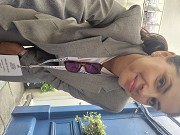Authors
Marcela Gruszczyk1; 1 University of Silesia in Katowice, PolandDiscussion
The Russian aggression against Ukraine led to a tightening and intensification of Polish-Ukrainian collaboration. Aid, understanding, support, and joined efforts are ongoing despite the difficult history and unresolved disputes between the two nations. On 1 September 2022 among nearly 30 000 pupils who had started the new academic year in the schools of Katowice (Southern Poland), almost 1 900 were children and young people from Ukraine. As an answer to the upcoming challenges for teachers, my colleagues and I launched “Edukatorium Historyczno-Społeczne” (Social-Historical Educational Project), which aimed at the enrichment and improvement of the history and social science curriculum. This paper discusses the key premises of the project and the challenges that we encountered while preparing these materials in the context of an ongoing war and an influx of refugees.
Our goal was to present Polish-Ukrainian relations as they were and are, including mutual injustice and casualties. The times of collaboration and amity, as well as the pride from mutual heritage were also included. Polish-Ukrainian relations, dating back over 1000 years in history, have multiple dimensions, and threads. Experts invited to the project (from various academic centres and universities in Poland) prepared 24 educational bundles (lessons’ scenarios and work task cards), which were then analysed and tested in practice (during live lessons) by a group of several dozens of teachers. Thanks to their constructive feedback, each bundle was improved, to serve best in mixed classes with both Polish and Ukrainian pupils. This process of improving and tuning the scenarios required extraordinary sensitivity, and care for the needs of all children and young people due to cultural and national diversity. Actions taken during the project were not limited to the ones in the classroom or lecture hall but were followed up by workshops. The workshops that took place during two conferences in May and November 2023 initiated constructive discussions between the teachers on the newest educational trends and tightened their collaboration with the academic community. Thanks to combining theory and practice, our educational project turned out to be something more than just a collection of printouts and materials. Additionally, the project can be perceived as a manifestation of collaboration, engagement of local communities and care for the future generations, for their knowledge and for their relationships. Today we already know that it contributed to the development of a conscious society, capable of understanding its own history, respecting diversity, and open to dialogue. 

